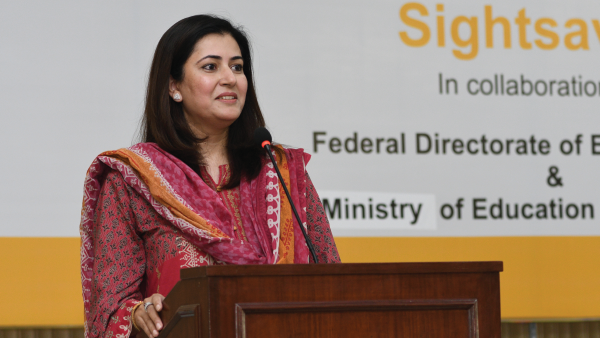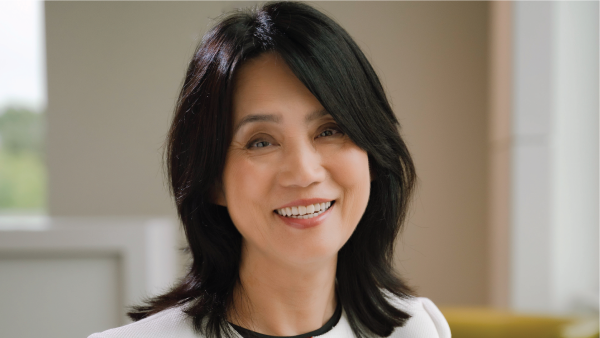You are viewing 1 of your 3 articles before login/registration is required
Finding the Path to Professionalism?
What are the external and internal issues that can call an optical practitioner’s reputation into question – and how can you deal with them?
Optometrists strive to deliver exemplary care to all their patients, but that doesn’t mean it’s a field free of complaints. Here, experienced optometrist and dispensing optician Lorcan Butler, Optical Engagement Manager at The Brain Tumor Charity, discusses the concept of professionalism and why education and training is vital in preparing new optometrists for the field’s sometimes sensitive demands.
What exactly is “professionalism” – and how do you learn or achieve it?
Professionalism is a complex concept involving individual, interpersonal, and social interaction. Learning professionalism is a long, never-ending process. It can take many years to become a fully-fledged professional, and we need a career-long continuing professional development to maintain it.
Prior to 2021, all CPD was clinical, but professionalism is now a GOC CPD requirement. And though we have clinical guidelines, there are no guidelines around professionalism. In fact, it’s a subject that’s not mentioned much until we qualify. In the second or third year of our optometry degrees, we are taught about law, about contracts and consent (which we will come back to). But there’s no official training in professionalism at university.
I believe it is something that should be talked about during optometry education because. After all, when optometrists qualify, they are thrust into a profession – expected to be professional and hopefully seen as a professional. So, all optometrists – no matter where they are in their career – need to maintain professional integrity not only for themselves but also so they don’t bring the whole profession into disrepute.
When you join an employer, the employer helps define your professional capacity – what you are able to do and not do. But boundaries can be difficult to observe, especially when you are working in a small practice and living within the community. For example, you might be out with your friends on a Friday night and one says to you, “Can you take a look at my eye?” Where does professionalism begin and end in this situation?
What’s the difference between duty of candor and duty of care?
Duty of care is clinical; you have a duty of care to look after all your patients to the best of your ability. You have to recognize your strengths and weaknesses, be aware of your clinical skills, and take 100 percent accountability for the patient. If you are unable to do that, you must pass the patient on to a colleague who will be able to look after them. If you refer a patient to the hospital, the hospital picks up the duty-of-care baton – but it may get passed back to you.
Duty of candor is a more recent concept. Essentially, it’s about putting your hands up when something has gone wrong. It could be a clinical mistake or it could be something easily “brushed under the carpet.” Maybe you forgot to order a patient’s glasses or they got broken. You could just re-order the glasses and say nothing. But with duty of candor, you have to admit that something went wrong, which can be difficult – especially if a mistake isn’t yours. You cannot simply say, “Sorry, that was John’s mistake.” We should say, “We’ve made a mistake and it’s our job to rectify it.” Patients may take their anger or frustration out on you either way.
What does the optical professional need to know about the different forms of consent?
You can have verbal consent, written consent, and informed, explicit, or implicit consent. Every day you are in contact with people and you may do something like brush your hand against somebody’s hair or face while putting on their glasses. You might have to ask, “Would you mind if I brush past your hair?” Nine out of 10 people will be okay with it. There are a few more physical things we need to do, such as performing applanation tonometry, placing contact lenses, or instilling drops, which can sting and be a little bit uncomfortable. Here, we may need more explicit consent. And, of course, for children we need consent form the parent.
There are also situations where we need to ask the patient to do something, but they may not want to do it. For example, you may want to refer a patient to the hospital for further investigation but the patient replies, “No, I would prefer not to.” Informed consent is the process in which a healthcare provider educates the patient about the risks, benefits, and alternatives of a given treatment regime. The consent is “informed” when the healthcare provider discloses this information in a “shared care” situation to the patient. Shared decision-making and consent are fundamental to good optometric practice. So, you will have to respect the patient’s wishes – even if you disagree. You could say, “Okay, can I just get some written proof to say that you didn’t want to act on my recommendation?” That written consent would act as your defense if ever a medico-legal investigation were to explore your patient records retrospectively.
Social media is an area dotted with pitfalls. How can professionals make sure they are being safe – and sensible – online?
Like the Friday night with your friends, social media is another area where there can be a blur between your job and your community. You could wear four or five different hats in your community – you could be an optometrist, you could be a church or mosque leader, you could play for the local football team, or be in a band. It can be hard to keep all these roles separate in your online activities. But I actually think optometrists tend to manage this quite well. For example, some people use Instagram and Facebook for family and friends, and stick to networks like LinkedIn for professional content. There are a number of WhatsApp groups in which optometrists can discuss anonymized patient details and solicit guidance from experts. These groups tend to be very well monitored and moderated, but it can be a delicate balance. There was a recent case of 10 GPs in the UK, for example, who faced being struck off the medical register for discussing patient details without patient consent in a private WhatsApp group.
Again, with social media there is no specific training or teaching for optometrists and dispensing opticians either in university or in your workplace.
And that takes us back to education. Is there simply not enough time to include professionalism in undergraduate courses?
I would say that’s true. Until recently, optometry students would do a three-year course followed by a pre-registration year. Now there is a shift to having students do four years of “blended” academic and practical experience from day one. This shift may see professionalism featuring a little more prominently at the undergraduate level. But while all the main colleges are very busy trying to implement this change, only a handful will be ready to launch this new curriculum in September. So, it’s still early days.
The New Optometrist Newsletter
Permission Statement
By opting-in, you agree to receive email communications from The New Optometrist. You will stay up-to-date with optometry content, news, events and sponsors information.
You can view our privacy policy here
Most Popular
Sign up to The New Optometrist Updates
Permission Statement
By opting-in, you agree to receive email communications from The New Optometrist. You will stay up-to-date with optometry content, news, events and sponsors information.
You can view our privacy policy here
Sign up to The New Optometrist Updates
Permission Statement
By opting-in, you agree to receive email communications from The New Optometrist. You will stay up-to-date with optometry content, news, events and sponsors information.
You can view our privacy policy here







